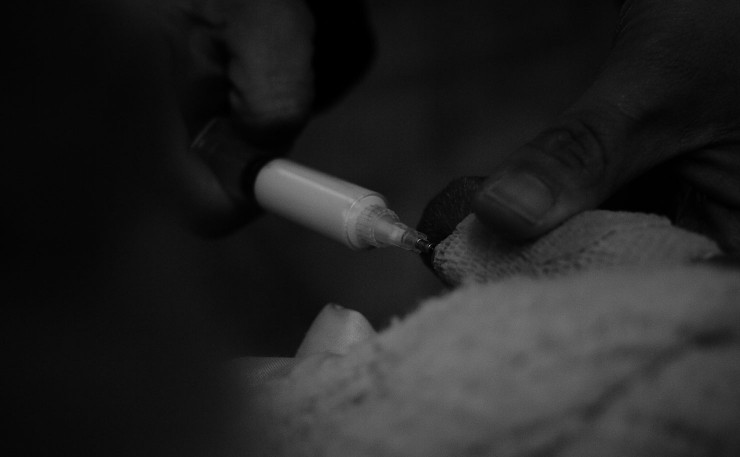A Victorian doctor has publicly admitted to providing end of life assistance to a patient, raising the possibility that a new precedent in euthanasia access will be set in Australia.
Rodney Syme, a physician from Melbourne, confirmed on Thursday that he provided a lethal dose of the barbiturate Nembutal to patient Steve Guest in 2005. Guest had suffered a long battle with cancer of the oesophagus — he couldn’t swallow and was described as a living skeleton due to his frail and weak body.
Syme’s announcement has led Victorian Police to reopen their investigation into Guest’s death and the Office of Public Prosecutions must now decide whether to pursue prosecution of Syme for his involvement. If convicted, he faces up to five years imprisonment.
By effectively forcing the Director of Public Prosecutions to make a decision about prosecution, a precedent is about to be set. Either the court system will set a judicial precedent or the OPP will effectively establish a less formal one by revealing that it will not pursue prosecution in certain instances.
The case is significant as previous euthanasia trials have not usually involved medical doctors. In one case, a son assisted his 88-year-old mother to commit suicide, resulting in Supreme Court Justice Peter Underwood handing down a suspended sentence on the grounds that the motivations for the act were compassion and love.
In another case heard by the Victorian Supreme Court, Justice Betty King judged that a community corrections order was the most appropriate punishment for a husband who attempted to help his sick wife to die.
But Syme’s admission means a doctor could now face court. For those who support euthanasia legalisation, this case could prove to be the most important development since euthanasia legislation was passed in the Northern Territory.
“If I were charged, I’d be asking the jury to decide whether I’m a criminal or a good doctor. I’m pretty confident about what a jury would think,” Syme told the ABC.
As Syme may well know, openly presenting the judiciary with such a decision has worked for euthanasia advocates in the past.
On 25 May 1995, the Northern Territory became the first jurisdiction in the world to pass laws legalising euthanasia. However, only a few patients were given access to life ending treatment before the Federal Government overruled the legislation. Since then, many have suffered painful and long deaths.
The next major statute law was enacted in the Netherlands in April of 2002 and did not suffer the same fate. Why? Partly because it was enacted by the federal parliament. However, more significantly, the law was also designed merely to formalise existing legal and medical practice.
During parliamentary debate in the Netherlands, this was one of the key arguments put by the government in favour of legislating to allow euthanasia: it had been effectively legal in the country long before April of 2002 due to case law.
The same scenario could now play out in Australia. Over the last nine years, Syme has only intimated that he assisted Guest in his desire to die, but never until Thursday had he explicitly stated the nature and extent of his assistance.
If this case does come before the courts, Syme’s confidence will be tested, and so too the value of precedents set in Australian jurisdictions.
A doctor who assists a patient to commit suicide is currently exposed to criminal liability in every jurisdiction of Australia. Certain cases may additionally attract charges of murder or manslaughter.
Whatever is decided, advocates and opponents of euthanasia will need to watch Victoria closely.
Donate To New Matilda
New Matilda is a small, independent media outlet. We survive through reader contributions, and never losing a lawsuit. If you got something from this article, giving something back helps us to continue speaking truth to power. Every little bit counts.




